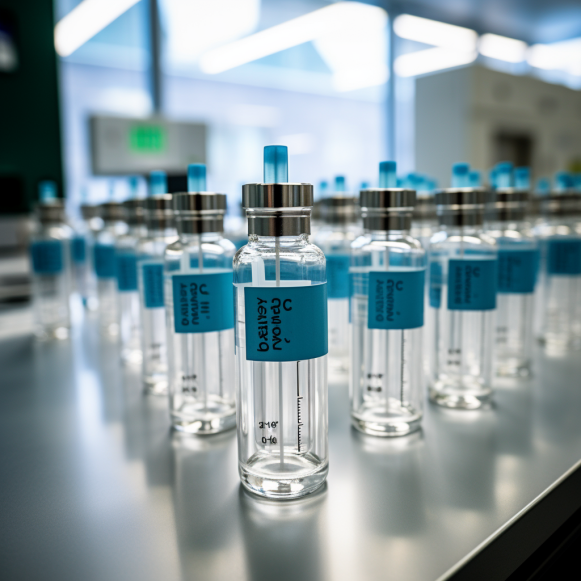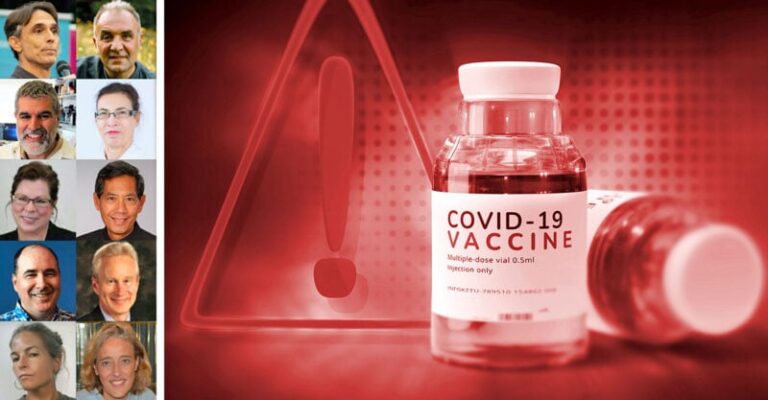Professor Exonerated After Being Alleged of ‘Unethical Practices’ in Famous COVID Vaccine Study

A Michigan State University (MSU) professor has been cleared of charges of “unethical practices” in connection with a study that claimed the COVID-19 vaccines caused hundreds of thousands of deaths in the United States.
Mark Skidmore, an MSU Department of Economics professor with over 90 published papers, published a study in the BMC Infectious Disease in January that suggested the total number of COVID-19 vaccine fatalities in the United States could be “as high as 278,000.” It was quickly criticized, and Mr. Skidmore was accused of employing “unethical practices” in the study. As a result, the journal retracted the study.
Mr. Skidmore has been cleared of all wrongdoing after a seven-month ethics investigation by the university’s Institutional Review Board (IRB). According to a press release issued on October 17 by the Christian ministry Liberty Counsel, the board stated that the study found no “noncompliance” with their protocols.
Mr. Skidmore was assisted by Liberty Counsel in reviewing the anonymous complaints he received as well as responding to the investigation.
Mr. Skidmore was accused of failing to follow rigorous oversight procedures required for clinical studies. If the university had found him “guilty,” Mr. Skidmore’s credibility and career would have suffered greatly.
This is due to the fact that clinical studies involving human subjects follow strict protocols to ensure that the participants are not harmed. As a result, any flaw in this area would be a significant blemish on the researchers’ reputation.
Mr. Skidmore’s study did not involve any clinical work, according to the university’s IRB. It instead relied solely on an online survey, which posed no risk to human respondents. As a result, the IRB deemed the study “exempt” from clinical study protocols and approved its continuation.
“The allegations against Dr. Mark Skidmore were baseless,” Liberty Counsel Chairman Mat Staver stated. “Researchers with integrity like Dr. Skidmore are using rigorous scientific protocols to validate the dangers of the COVID-19 shots.”
“Censoring scientific debate is reprehensible and our researchers need to be free to conduct proper science without fear of later being the subject of an ethics investigation because their findings contradict a certain narrative.”
MSU was contacted for comment by The Epoch Times.
Best Research Paper
While Mr. Skidmore’s study in the BMC Infectious Disease journal has been retracted, an updated version was recently published in the journal Science, Public Health Policy, and the Law.
An online survey was administered to 2,840 participants between December 18 and December 23, 2021, and data on COVID-19 health experiences were collected. “The primary aim of this work is to identify factors associated by American citizens with the decision to be vaccinated against COVID-19,” according to the abstract.
The survey gathered information on why respondents chose or refused to receive COVID-19 vaccinations. It also gathered information about respondents’ COVID-19 illnesses and vaccinations. The survey found that respondents who knew someone who had experienced a health problem as a result of vaccination were less likely to be vaccinated against COVID-19.
Six hundred and twelve (22 percent) of the 2,840 participants said they knew at least one person who had a health problem after receiving a COVID-19 shot.
Mr. Skidmore extrapolated the survey results to the national level, estimating that COVID-19 vaccine fatalities in the United States could be as high as 289,789. The revised study’s COVID-19 vaccine fatality rate is 11,789 higher than the original study, according to the journal Science, Public Health Policy, and the Law.
Mr. Skidmore’s original study was retracted by the BMC Infectious Diseases journal after “concerns were raised regarding the validity of the conclusions drawn after publication.”
Following publication, a peer review of the study found that “the methodology was inappropriate as it does not prove causal inference of mortality, and the study’s limitations were not adequately described.”
Despite being retracted, the study is still ranked in the top 1% of shared research globally, according to data science firm Altmetric. The study is ranked first among all BMC Infectious Diseases outputs tracked by Altmetric.
Mr. Skidmore claimed in April that the study published in the journal BMC Infectious Diseases went viral on social media, reaching up to 17 million Twitter users before being retracted.
He attributed the study’s widespread exposure to two factors. “First, the discovery struck a chord with many people who have loved ones who they believe were harmed by the COVID-19 vaccine.” Second, for a variety of reasons, many people were outraged by the study,” he explained.
Other studies have discovered links between COVID-19 vaccines and an increase in deaths. According to a March report from global macro-investment firm Phinance Technologies, COVID-19 vaccines resulted in approximately 310,000 extra deaths in the United States.
Some studies have found the opposite. According to a Commonwealth Fund study, COVID-19 vaccination efforts have prevented 2 million deaths in the United States through March 2022.
Another serious concern about the vaccine is the persistence of spike proteins after vaccination for an extended period of time.
Despite the CDC’s claim that mRNA from COVID-19 vaccines is “broken down within a few days after vaccination and doesn’t last long in the body,” new research shows that spike proteins are retained in the biological fluids of people who received an mRNA COVID-19 vaccine six months later.






